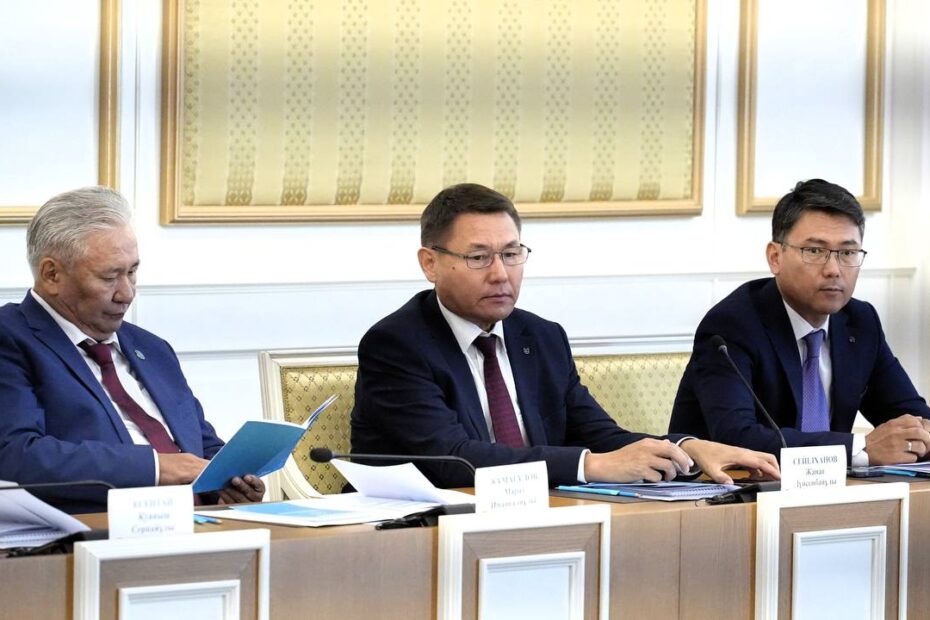On August 29 this year, on the eve of the 30th anniversary of the Constitution of the Republic of Kazakhstan, Astana hosted the international scientific and practical conference “Constitution and Statehood: a dialogue of law and the future” with the participation of judges of constitutional courts of foreign countries, leading domestic and foreign legal scholars, members of Parliament, representatives of government agencies, the professional legal community, as well as international organizations.
Within the framework of the session “Constitutional Stability and protection: law and order as the basis of the future”, Marat Zhumagulov, Doctor of Law, Chief Researcher at the Department of Economic Policy Analysis of the KazISS under the President of the Republic of Kazakhstan, delivered a speech.
The discussion focused on the following questions:
• what is the role of the law enforcement system to preserve constitutional stability;
• how is the duty to comply with laws and respect the rights and freedoms of other citizens understood today;
• what should be an effective mechanism for protecting the Constitution in the future.
According to M. Zhumagulov, the Constitutional Court acts as an “intellectual filter” that cuts off excessive or hasty initiatives that can disrupt the balance of rights and duties of citizens of the republic.
The speaker’s conclusions were supported by examples of the legal positions of the Constitutional Court in recent years:
April 8, 2023 – emphasis on the inadmissibility of legal uncertainty in the division of powers;
October 6, 2023 – elimination of conflicting deadlines for filing appeals in administrative cases and ensuring equality of procedural guarantees;
January 10, 2024 – protection of the right to appeal procedural measures before their execution while maintaining the stability of law and order;
December 24 and 27, 2024 – finding a balance between procedural effectiveness, the right to access justice and the prohibition of retroactive application of the law.
Separately, Marat Zhumagulov noted the trend towards the so-called “soft constitutional activism”: when the Court does not break the system, but corrects it step by step, forming new standards for interpreting the law through the prism of constitutional values.
He also proposed a number of steps that would help strengthen the preventive role of the Constitutional Court:
• expanding the mechanisms of preliminary constitutional control;
• creating stable channels of consultative interaction with the branches of government;
• attracting external experts (amicus curiae) to consider complex cases;
• introducing practices for assessing the constitutional impact of new laws;
• increasing information openness and accessibility of legal positions for citizens.
Concluding his speech, Marat Zhumagulov emphasized: today, the Constitutional Court is not only the guarantor of legal certainty, but also the architect of the country’s sustainable legal future.

